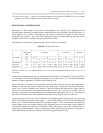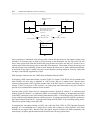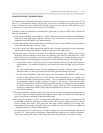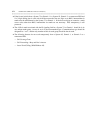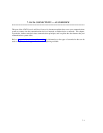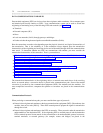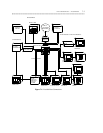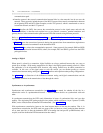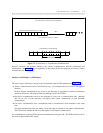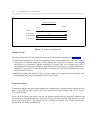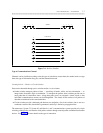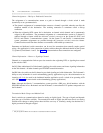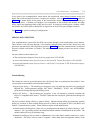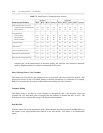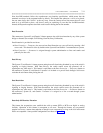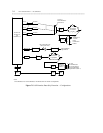
DATA CONNECTIVITY — AN OVERVIEW 7-5
_ ______________________________________________________________________________________
_ ______________________________________________________________________________________
_ ______________________________________________________________________________________
3 4 5 6 7 P SP ST 1 2
SYN SYN SOH TEXT ETX BCC
BLOCK OF
CHARACTERS
SYNCHRONOUS TRANSMISSION
ST = START, P = PARITY, SP = STOP
• • •
IDLE
ST 1 2
ONE CHARACTER (7 OR 8 BITS) AT A TIME
ASYNCHRONOUS (START/STOP) TRANSMISSION
Figure 7-2. Synchronous vs. Asynchronous Communication
Protocol converters and terminal emulators can convert communications between synchronous and
asynchronous. See chapter 8 for an explanation of how these devices and programs are used to connect
dissimilar devices.
Simplex vs. Half-Duplex vs. Full-Duplex
The terms simplex, half-duplex, and full-duplex describe the mode of DTE operation (see figure 7-3).
• Simplex communication occurs in one direction only. No communication ever occurs in the opposite
direction.
Because simplex communication only occurs in one direction, its application is limited to monitoring
and broadcast devices, like burglar alarms and telemetric collars for wildlife.
• Half-duplex communication occurs in one direction at a time over a communications link. Although
data can be sent in both directions, half-duplex links cannot communicate in both directions
simultaneously.
• Full-duplex communication uses a transmission link to communicate in both directions at the same
time.
Note that communication lines are usually 4-wire links that are capable of full-duplex communication.
The DTE dictates whether the link is for full-duplex or half-duplex communication.
In a communications path, the DCEs supervise communication along the link. The DCEs should be set for
the mode of operation the DTEs expect.



